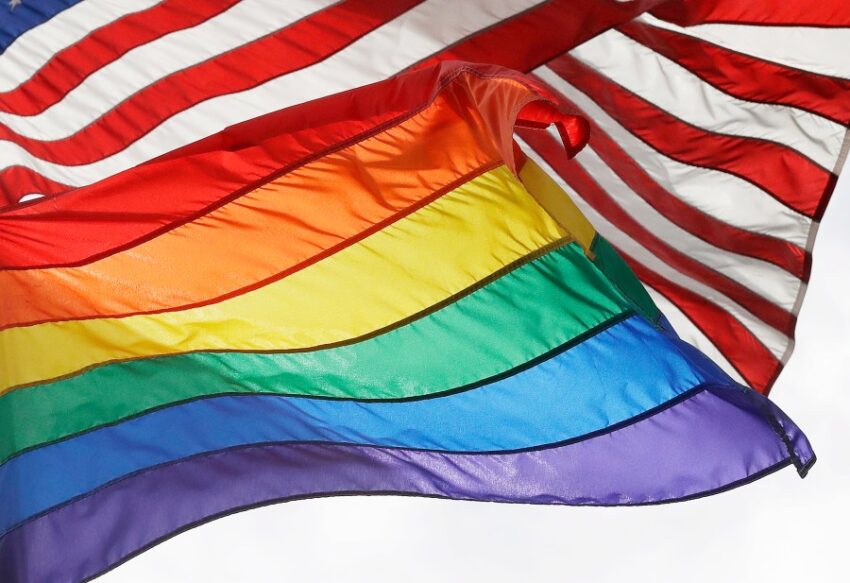EL PASO, Texas (KTSM) — Advocates are concerned El Paso youth will be disproportionately hurt by the Trump Administration’s move to halt specialized support from the national suicide hotline for LGBTQ+ youth.
“It’s going to affect youth across the nation, especially in places like El Paso where we are isolated from the rest of our state and large cities,” said the Borderland Rainbow Center’s Executive Director Amber Perez.
In a news release sent out on Tuesday, June 17, the Substance Abuse and Mental Health Services Administration (SAMHSA) announced that the 988 Suicide and Crisis Lifelline would “no longer silo LGB+ youth services.” The statement also read that the service would instead “focus on serving all help seekers.”
The LGBTQ+ youth service line, otherwise known as the “Press 3 option,” was established in 2022 as a subnetwork service of the 988 Lifeline.
LGBTQ+ youth experiencing suicidal thoughts or a mental-health crisis could connect with an LGBTQ+ trained counselor by dialing 988 and then pressing the number 3.
According to the hotline’s website, LGBTQ+ communities are disproportionately at risk for suicide and other mental-health struggles.
SAMHSA’s statement also read that everyone who contacts the 988 Lifeline, including “those previously served through the Press 3 option” can continue to “receive access to skilled, caring, culturally competent crisis counselors” for support.
However, Perez said that by directing the LGBTQ+ youth to the general services line, they are less likely to be connected with someone who is actually “culturally competent” and understanding of their experiences. She said that could result in dire consequences.
“They are going to get matched with somebody perhaps that has absolutely no idea how to work with the LGBTQ+ youth, who may also have feelings that don’t necessarily match up with the LGBTQ+ youth. They’re going to be calling these crisis lines, and they might end up on the phone with somebody who says, ‘You know what? I am going to pray for you, but I don’t believe in the life that you’re living.’ That could be enough to push them off that precipice,” Perez said.
Ashley Prieto, a licensed professional counselor with the El Paso Behavioral Health Systems, said it is understood among those in the mental-health field that it is important to have professionals who specialize in supporting certain marginalized groups.
Prieto said specialists are able to deal with those mental-health crises quicker because the person in crisis is more likely to feel acknowledged and understood — therefore making it more probable they can overcome their crisis.
“If they call in and they get in touch with somebody who starts using the wrong pronouns and are not willing to understand the relationships that they’re in, the kinds of unique stress that they’re in, they may not feel understood and heard,” Prieto said. “This could, in turn, put additional stress on these individuals, especially young people who may not have the social support systems to feel accepted.”
People can still directly connect with LGBTQ+ trained counselors for mental-health crisis support by dialing 1-866-488-7386. That number belongs to the Trevor Project’s national suicide hotline.
The Trevor Project is a suicide prevention and crisis intervention nonprofit organization for LGBTQ+ young people. They provide information and support to LGBTQ+ young people 24/7, year-round.
However, Prieto said that having the “Press 3 option” was vital to streamlining a mental-health crisis phone call. She said reaching the Trevor Project’s hotline may be more challenging and time consuming for a person in distress.
“When people are feeling really low, their frontal lobe is not processing information as well, when they’re feeling really stressed out. And so remembering 988 is much easier than remembering a full Trevor Project number,” Prieto said. “By having access to 988 and having those resources there, these kiddos can access resources quickly and get the help that they need fast without having to do the research, without having to try to figure out what numbers, which number is working,” Prieto said.
The LGBTQ+ service hotline program was federally funded by $33 million. According to SAMHSA, those funds have since been reallocated and spent for other 988 Lifeline LGBTQ+ subnetwork services.
 Read: Read More
Read: Read More




